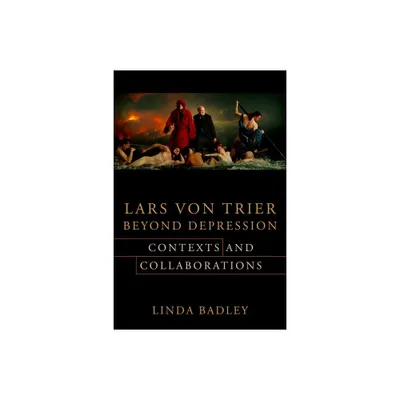Home
Immanent Frames: Postsecular Cinema between Malick and von Trier
Loading Inventory...
Barnes and Noble
Immanent Frames: Postsecular Cinema between Malick and von Trier
Current price: $36.95


Barnes and Noble
Immanent Frames: Postsecular Cinema between Malick and von Trier
Current price: $36.95
Loading Inventory...
Size: Paperback
*Product Information may vary - to confirm product availability, pricing, and additional information please contact Barnes and Noble
For some time now, thinkers across the humanities and social sciences have increasingly called into question the once-dominant view of the relationship between modernity and secularism, prompting some to speak of a "postsecular turn." Until now, film studies has largely been silent about this development, even though cinema itself has been a major vehicle for such reflection. This fact became inescapable in 2011 when Terrence Malick's
The Tree of Life
and Lars von Trier's
Melancholia
were released within days of each other. While these two audacious and controversial films present seemingly opposite perspectives—the former a thoughtful meditation on faith, the latter a portrayal of nontriumphalist atheism—together they raise critical questions about transcendence and immanence in modern life. These films are, however, only the most conspicuous of a growing body of works that call forth similar and related questions—what this collection aptly calls "postsecular cinema."Taking the nearly simultaneous release of
and
as its starting point and framing device, this pioneering collection sets out to establish the idea of postsecular cinema as a distinct body of films and a viable critical category. Adopting a film-philosophy approach, one group of essays examines Malick's and von Trier's films, while another looks at works by Chantal Akerman, Denys Arcand, the Dardenne brothers, and John Michael McDonagh, among others. The volume closes with two important interviews with Luc Dardenne and Jean-Luc Nancy that invite us to reflect more deeply on some of the central concerns of postsecular cinema.
The Tree of Life
and Lars von Trier's
Melancholia
were released within days of each other. While these two audacious and controversial films present seemingly opposite perspectives—the former a thoughtful meditation on faith, the latter a portrayal of nontriumphalist atheism—together they raise critical questions about transcendence and immanence in modern life. These films are, however, only the most conspicuous of a growing body of works that call forth similar and related questions—what this collection aptly calls "postsecular cinema."Taking the nearly simultaneous release of
and
as its starting point and framing device, this pioneering collection sets out to establish the idea of postsecular cinema as a distinct body of films and a viable critical category. Adopting a film-philosophy approach, one group of essays examines Malick's and von Trier's films, while another looks at works by Chantal Akerman, Denys Arcand, the Dardenne brothers, and John Michael McDonagh, among others. The volume closes with two important interviews with Luc Dardenne and Jean-Luc Nancy that invite us to reflect more deeply on some of the central concerns of postsecular cinema.


![Lars Von Trier's The Kingdom Trilogy [Blu-ray]](https://prodimage.images-bn.com/pimages/0860009138445_p0_v2_s600x595.jpg)


![Lars von Trier's Europe Trilogy [Blu-ray] [Criterion Collection]](https://prodimage.images-bn.com/pimages/0715515280815_p0_v6_s600x595.jpg)












